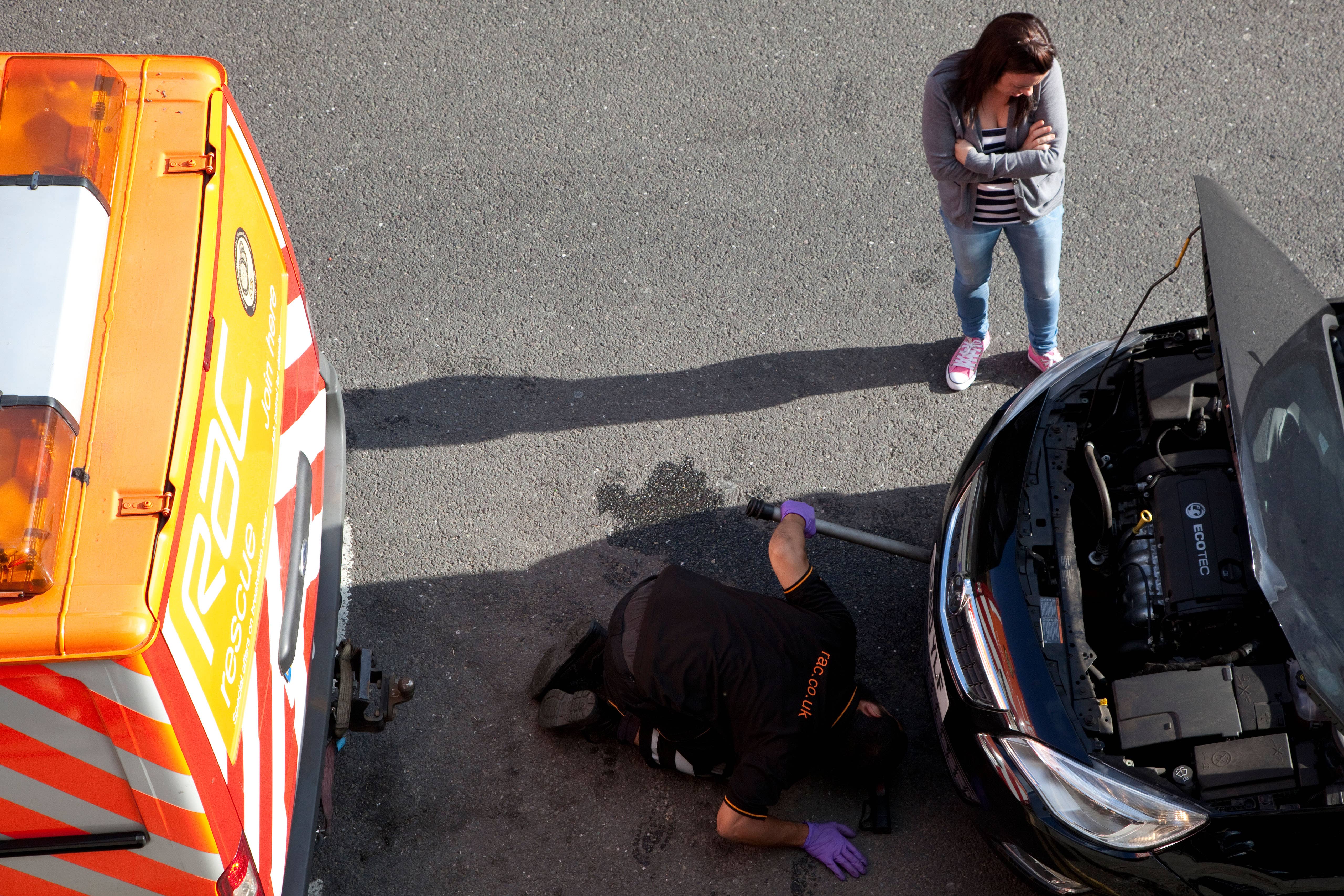Vehicle recovery workers to be allowed to display red flashing lights
The Department for Transport announced the measure following a long-running campaign by the sector.

Britain’s vehicle recovery workers will be allowed to display red flashing lights in an attempt to reduce the likelihood of them being hit by other vehicles.
The Department for Transport (DfT) announced the measure following a long-running campaign by the sector.
Recovery workers assisting drivers of broken-down vehicles are currently only permitted to use amber flashing lights.
It is believed that red lights – such as those deployed by the emergency services – are more likely to be spotted and acted upon by passing motorists.
This announcement is ... very good news for our industry and for the drivers we serve as it will unequivocally improve the visibility of roadside workers and help save lives
The policy change was included in the DfT’s Plan for Drivers, which stated: “Road recovery operators provide a crucial service to stranded drivers and support the economy by getting goods moving and preventing the build-up of congestion on our busy road network to help journeys flow more smoothly.
“To help keep them safe and get people moving again when vehicles break down, we will permit the use of rear-facing red flashing lamps by road recovery operators.”
RAC chief operations officer Dom Shorrocks described the measure as “an important milestone” for the roadside assistance industry.
He said: “We’ve long been calling for roadside assistance workers and recovery drivers, including our own, to be allowed to use red flashing lights alongside the customary amber ones to alert motorists to their presence.
“In fact, we again raised the issue with the Secretary of State in the summer, urging him to take action.
“This announcement is therefore very good news for our industry and for the drivers we serve as it will unequivocally improve the visibility of roadside workers and help save lives.
Allowing breakdown vehicles to use flashing red lights will improve the safety of drivers and passengers in broken-down cars, as well as offer more protection to our patrols working at the roadside
“There have been too many tragic collisions where lives have been lost involving stationary recovery vehicles at the sides of high-speed roads, and where more prominent red lights might have made a difference.
“As soon as the law is changed, we’ll make sure all of our teams can start using red flashing lights as quickly as possible.”
AA president Edmund King said: “Allowing breakdown vehicles to use flashing red lights will improve the safety of drivers and passengers in broken-down cars, as well as offer more protection to our patrols working at the roadside.”
Vehicle recovery worker Steve Godbold was hit and killed by a lorry which strayed on to the hard shoulder on the M25 while he was assisting another driver in September 2017.
He was wearing high-visibility clothing and had amber lights flashing on his vehicle when he was struck.
Bookmark popover
Removed from bookmarks